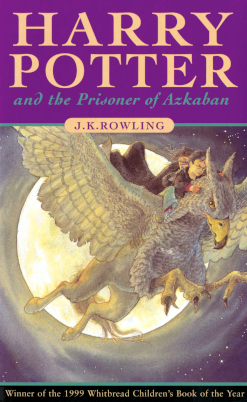The Grand Inquisitor
| It has become rather fashionable to criticize the Bush administration by way of George Orwell’s 1984. The parallel certainly rings true in a number of ways. Like Big Brother, the Bush administration always seems be watching. There have been numerous reports of U.S. citizens being threatened, censored, spied on and interrogated, both by the FBI and Secret Service. Citizens are also snitching on one another. Some have been fired. This for often what are innocent acts of free speech. The Bush administration is likewise famous for its doublethink, in which, for example, the Clear Skies initiative means everything but. Perhaps more chilling is the way the Bush administration seeks to recreate reality. Former justifications for war have been retroactively changed. Government websites have been purged. Reality is recreated each day. The past is irrelevant. But Orwell isn’t the only author to which we can look for help in understanding BushCo. There’s also Dostoevsky. Take The Grand Inquisitor chapter of The Brothers Karamazov. The Brothers Karamazov, Dostoevsky’s final novel, is a complex story about God, murder and family. It’s a tale of four sons, each with his own stark motivation for patricide. Embedded within this novel is perhaps the most famous single chapter in all of literature. A story within a story, The Grand Inquisitor is a parable of Jesus of Nazareth’s return to earth, in the sixteenth century, to the Spanish town of Seville. The following summary is courtesy of Spark Notes: (Jesus) begins to heal the sick, but his ministrations are interrupted by the arrival of a powerful cardinal who orders his guards to arrest Christ. Late that night, this cardinal, the Grand Inquisitor, visits Christ’s cell and explains why he has taken him prisoner and why he cannot allow Christ to perform his works. Throughout the Grand Inquisitor’s lecture, Christ listens silently. The Grand Inquisitor tells Christ that he cannot allow him to do his work on Earth, because his work is at odds with the work of the Church. The Inquisitor reminds Christ of the time, recorded in the Bible, when the Devil presented him with three temptations, each of which he rejected. The Grand Inquisitor says that by rejecting these three temptations, he guaranteed that human beings would have free will. Free will, he says, is a devastating, impossible burden for mankind. Christ gave humanity the freedom to choose whether or not to follow him, but almost no one is strong enough to be faithful, and those who are not will be damned forever. The Grand Inquisitor says that Christ should have given people no choice, and instead taken power and given people security instead of freedom. That way, the same people who were too weak to follow Christ to begin with would still be damned, but at least they could have happiness and security on Earth, rather than the impossible burden of moral freedom. The Grand Inquisitor says that the Church has now undertaken to correct Christ’s mistake. The Church is taking away freedom of choice and replacing it with security. In today’s world, the Bush Administration is the church and George Bush the Grand Inquisitor. Bush has given us security in exchange for our freedom. He has given us happiness in exchange for knowledge of the truth. He has given us peace in exchange for slavery. We have been given the sweet, mind-numbing nectar of contentment. In exchange, we have given him authority, authority to take away our liberty. We are drones and chattel, and we must never question why. |

















Comments on "The Grand Inquisitor"
-
 Delia Christina said ... (2/24/2005 04:23:00 PM) :
Delia Christina said ... (2/24/2005 04:23:00 PM) :
-
 Wasp Jerky said ... (2/24/2005 09:15:00 PM) :
Wasp Jerky said ... (2/24/2005 09:15:00 PM) :
post a commentnot to get all snooty, but this is the precise reason why a background in the humanities is necessary - it gives you a sense of historical perspective.
for instance, when the war was ramping up and we were still reeling from 9.11, all i could think of was orwell's 1984 or plato's allegory of the cave. then, when the absurdities of war were being revealed, all i could think of was heller's catch 22. then i started remembering little snatches of history: yes, vietnam, but other colonial ventures in the south pacific, in latin america, in africa.
i started thinking of my philosophy classes from *high school* that looked at ways the individual was inevitably crushed by the moronic mob; i remembered my dickens, elliot and thomas hardy.
and then i looked around me and wondered why no one could see the same things i could.
You can't just go around reading like that ding. You could find out all sorts of disturbing things that way.
Seriously, yeah, there's a huge problem in this country with people having no idea what's going on. Blame can be flung in a lot of directions. Mainstream journalism in this country is, well, a complete joke. The education system isn't much better. I was fortunate enough to grow up in a town with a really great school system. Not everyone is. Most people leave school with no historical context for what's going on in the present. We studient Vietnam in U.S. History at my high school and I still feel like I was left out of the loop.
Speaking of education, I'm also starting to wonder: If Social Security and other such programs get the nix, will public education be far behind?